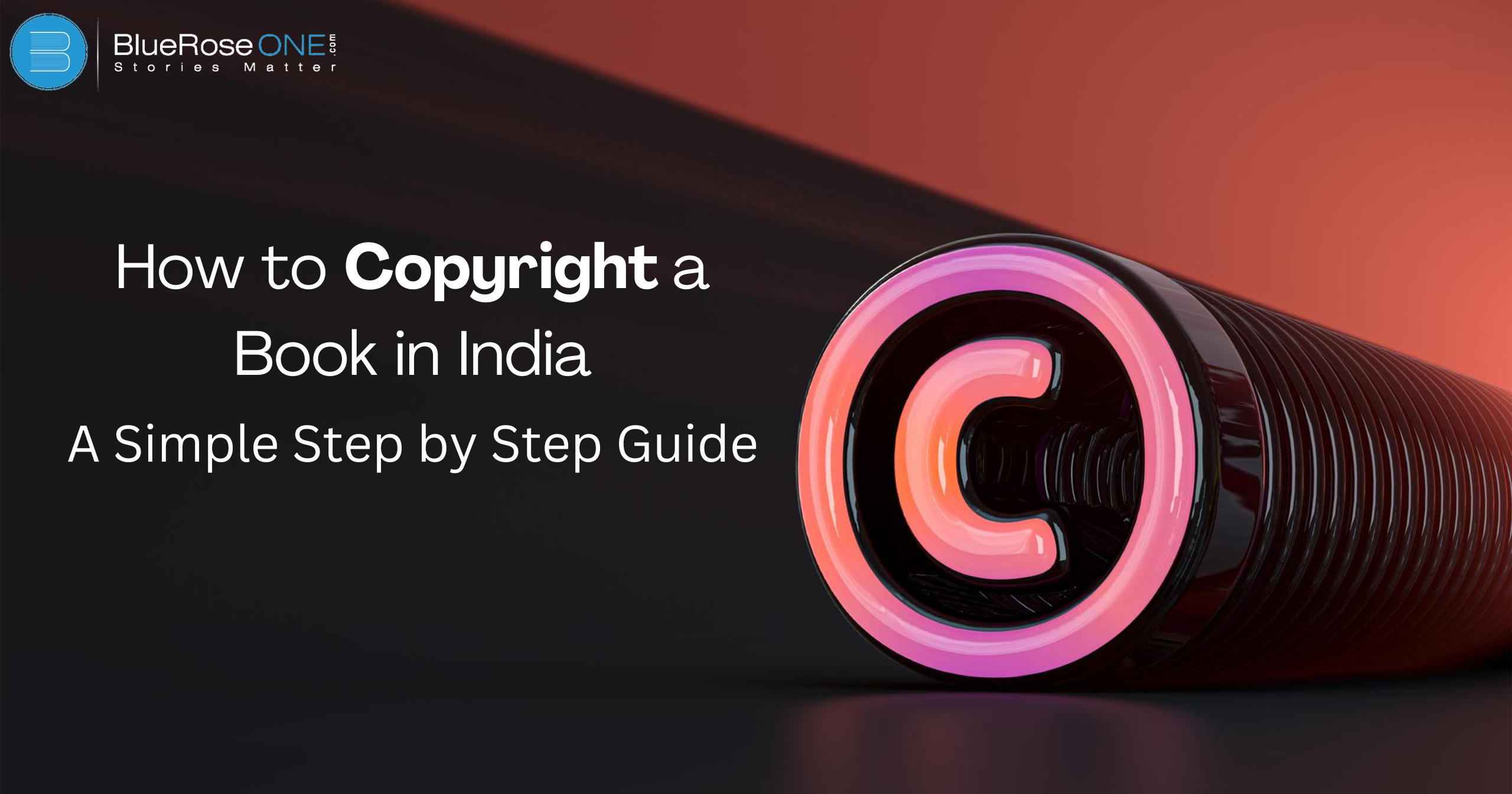Step 1: Understand Copyright Basics
Understanding the fundamentals of copyright is critical for preserving your book and your author rights. Copyright is a legal privilege granted to creators of original works, such as books, to govern how their work is used. It stops others from duplicating, distributing, or reusing your work without permission. In India, copyright is immediately given if you create and record your work in a physical form, such as writing it down or publishing it. However, registering your copyright provides an additional layer of legal protection, making it easier to demonstrate ownership in the event of a disagreement.
Step 2: Prepare Your Manuscript
Before applying for copyright, make sure your book is full and ready to submit. This includes checking for mistakes, formatting elegantly, and structuring the text properly. While your manuscript is not required to be published, it should be in final shape if you desire to copyright the original work. Save your manuscript in a digital format like PDF or DOC, which is frequently required throughout the copyright registration procedure. A well-prepared manuscript not only streamlines the submission process, but also protects the integrity of your work as it stands.
You may also like: Freytags Pyramid: Definition, Structure and Examples
Step 3: Visit the Copyright Office Website
Step 4: Fill Out the Application (Form XIV)
Step 4: Fill Out the Application (Form XIV)
To copyright a book in India, one necessary step is to complete the Application (Form XIV). This form is part of the official procedure established by the Copyright Office under the Copyright Act of 1957. Form XIV requests specific information on the applicant, the author, and the book being copyrighted, including the title, language, publication status, and type of work. It also includes a declaration of ownership, which confirms that the petitioner has the rights to the book. Once completed, the form must be sent with the necessary fee and supporting papers, such as proof of identity and a soft copy of the book, to begin the registration process.
Provide details such as:
- Title of the book
- Author’s name and contact information
- Publisher details (if applicable)
- Declaration of originality
You may also read: What is the Fourth Person Point of View? An Essential Guide
Step 5: Pay the Application Fee
You must pay an application fee. The charge varies according to the type of work and whether it is filed online or offline. For literary works, the charge is typically reasonable, making it accessible to authors. When filing online, you can pay with a variety of methods, including net banking, debit cards, and credit cards. Remember to preserve the payment receipt as verification, as it will be necessary during the application process. This cost ensures that your submission is formally recorded and brings your copyright registration closer to completion.
The fee varies depending on the type of work. For literary works like books, the standard fee is INR 500. You can pay online through the website or via a demand draft.
Step 6: Submit the Required Documents
When you’re ready to copyright your book in India, the next step is to provide the necessary documentation. These include a copy of your book, evidence of identification (such as an Aadhar card or passport), and a completed application form. The book should be in its final form, and you must provide both physical and digital copies. If your work includes numerous authors, you must make a joint declaration. To avoid delays in the registration procedure, ensure that all paperwork is clear and full. Submitting everything correctly will assist ensure that your copyright application runs smoothly.
Attach the following documents with your application:
- A copy of the manuscript (physical or digital).
- Proof of identity (Aadhaar, PAN card, passport, etc.).
- If you’re not the author (e.g., a publisher), a No Objection Certificate (NOC) from the author.
Step 7: Verification and Objection Period
The “Verification and Objection Period” is a critical stage when applying for copyright registration in India. After you submit your application, the Copyright Office will check it to confirm that all information is valid. This process normally takes around 30 days. If a third party raises any concerns or objections, such as claiming rights to the work, the applicant will be notified. You must address these objections, which may cause a delay in registration. It is critical to be prepared during this period, as resolving objections might influence how quickly your copyright is issued.
You may also like: What is Upfront Fiction? Definition, Traits and Examples
Step 8: Review and Approval
Step 9: Receive Your Copyright Certificate
Tips for Copyrighting Your Book
Register Early: Registering your book for copyright protection as soon as feasible is an important step. While your work is automatically protected from the moment it is created, registering it with the Copyright Office in India offers legal proof of ownership. Early registration aids in the resolution of future disputes and strengthens your case if someone else utilizes your work without permission. It also makes it easier to enforce your rights in the event of infringement.
Keep Records: Keep copies of all drafts, notes, emails, and other materials relevant to the progress of your work. These records can be used to prove creation and establish ownership in the event of a dispute. It’s also a good idea to keep records of your submissions to copyright authorities, as well as any correspondence you receive regarding registration. Good record-keeping improves your case and safeguards your rights.
Consult an Expert: When copyrighting your book in India, it’s best to consult with a professional, such as a copyright lawyer or an intellectual property (IP) consultant. They can assist you grasp the legal implications of copyright, make sure your work is completely protected, and walk you through the registration procedure. An expert can also advise you on how to manage future copyright disputes or infringement issues, providing you peace of mind that your work is protected.
















